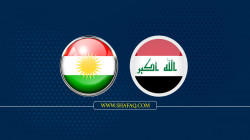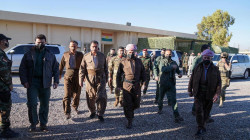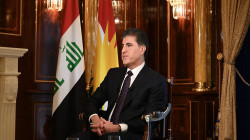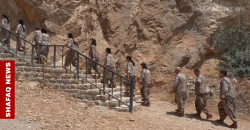Iraqi women's political influence: two decades of limited impact
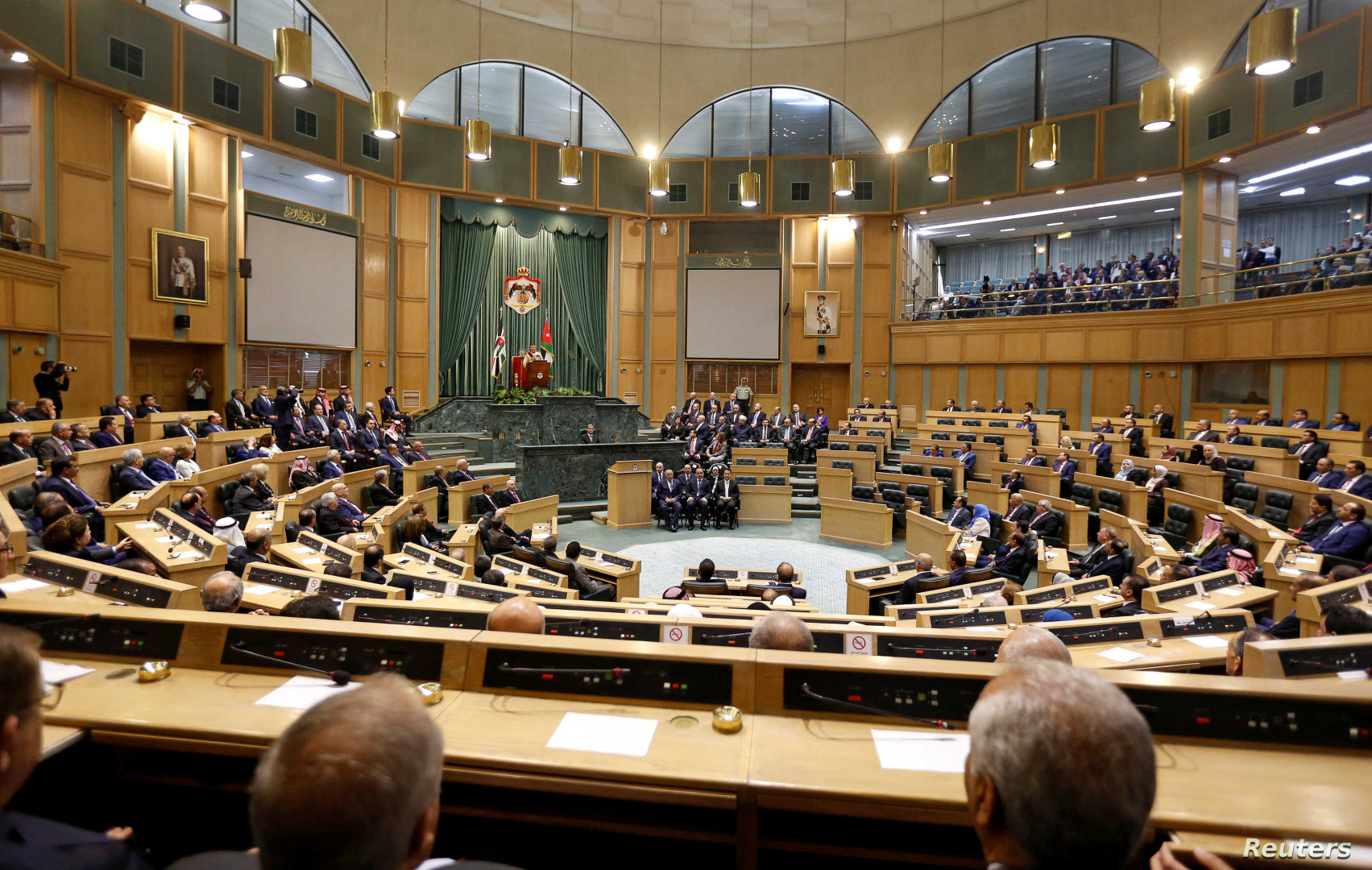
Shafaq News/ Despite a consistent presence in Iraq's political arena for nearly two decades, Iraqi women have yet to achieve substantial influence in shaping the nation's laws and policies, analysts say.
Since the fall of Saddam Hussein's regime in 2003, women have maintained a presence in Iraq's Parliament through five consecutive electoral cycles. Their participation has also included earlier governing bodies like the Governing Council and the interim and transitional governments. However, women have struggled to gain significant decision-making power or enact meaningful legislative changes despite this sustained involvement.
As the current parliamentary term nears its end, analysts' concerns about the lack of tangible progress for women in Iraqi politics persist.
International Frameworks and Women's Political Participation in Iraq
Global efforts to address the historical exclusion of women from political life have been grounded in international conventions and declarations that emphasize equality and the elimination of violence and discrimination against women. In its preamble, the Universal Declaration of Human Rights underscores the importance of "faith in fundamental human rights, the dignity and worth of the human person, and the equal rights of men and women." Several key international instruments, such as Article 25 of the 1966 International Covenant on Civil and Political Rights, explicitly affirm the right to equality between men and women in political and public life.
The 1979 Convention on the Elimination of All Forms of Discrimination Against Women (CEDAW), particularly Article 7, focuses on women's right to political participation and representation at both international and national levels. The Committee on the Elimination of Discrimination against Women, through General Recommendation No. 23, further calls on states to take all necessary measures to eliminate discrimination against women in political and public spheres. Additionally, UN Security Council Resolution 1325, the first of its kind, recognizes the crucial role of women in peacekeeping and stresses their involvement in political negotiations.
Despite these international frameworks, structural challenges continue to hinder women's political participation globally. As of 2020, women occupied only 26% of positions in national parliaments worldwide. In contrast, Iraq, with a parliamentary quota of 25%, achieved 28.9% representation for women in the 2021 elections, ranking second in the Middle East after the UAE.
Efforts to Empower Women?
Ashraf al-Dahhan, Director-General of the Office of Non-Governmental Organizations in Iraq, highlighted during the 2023 Middle East Forum that "The Iraqi government has established a department for women's empowerment within the General Secretariat of the Council of Ministers." He noted that the government has also developed strategies to enhance women's participation in society, including the National Strategy for Iraqi Women 2023 in cooperation with the United Nations.
"Iraq has over 298 active non-governmental organizations focused on women's rights, 73 of which are led by women," al-Dahhan added.
However, these initiatives often face obstacles due to entrenched patriarchal attitudes and the dominance of male-dominated political parties. Member of Parliament Noor Naif voiced concerns about the quality of women's representation, stating that "the issue lies in the qualitative representation, which is very low due to the presence of some who are not capable and are controlled by their parties."
Naif added that women often end up supporting men rather than other women. "In reality, there is a problem with women supporting women. The opposite is happening; women support men, and even women running for elections receive more support from men than women."
The proposed amendment to Personal Status Law No. 188 of 1959 has ignited widespread controversy in Iraq, both within Parliament and among the public. The debate continues, with prominent parties, particularly Islamic ones, pushing for the amendment while female MPs and civil organizations demand its cancellation. Opponents argue that the amendment would permit the marriage of girls as young as nine years old, potentially returning Iraq to the "era of concubines."
Gender Disparities in Leadership and Policy-Making
Former Lawmaker Nada al-Jubouri told Shafaq News Agency that the gap in female representation in Iraq's leadership is a "critical political challenge." She noted that a review of Iraq's report for the Beijing 2024 Action Plan revealed significant gaps, particularly the absence of female leaders in the three presidencies and the Supreme Judicial Council.
Al-Jubouri emphasized the importance of Iraq's commitment to international agreements, particularly United Nations Security Council Resolution 1325, which mandates women's participation in political decision-making. While the constitution guarantees women 25% representation in legislative councils, al-Jubouri argued that this is insufficient, as executive decisions remain dominated by male leaders.
She stressed that increased female leadership is essential for Iraq to meet the 17 Sustainable Development Goals by 2030. "Without addressing this gender disparity in executive decision-making, it will impact social cohesion and delay the enactment of legislation beneficial to society, children, the elderly, and women."
Al-Jubouri, who is also a physician, highlighted women's health issues, arguing that the Ministry of Health alone is not equipped to address these challenges. She called for a higher committee led by a female specialist to tackle women's health concerns, reduce maternal mortality rates, promote early breast cancer detection, and provide vaccines for cervical cancer.
She also pointed out that poverty has become a predominantly female issue due to unequal employment opportunities. "The most effective and appropriate solution for the advancement of society is to ensure the credibility of what Iraq has ratified and signed by all Iraqi governments," she said.
Political Analyst's Perspective
Political analyst Mukhalad Hazem described the role of women in Iraq's Parliament over the past 20 years as "extremely limited." He noted that only a handful of female lawmakers have played a role in legislation, objections, and interrogations, and there has been little genuine impact from women in Parliament.
Hazem added that many female lawmakers rose to Parliament through the political blocs they belong to, making them unable to deviate from their bloc's agenda and subject to the will of their leaders. Consequently, a genuinely opposing voice pushing for the public interest has been absent."Most current male and female parliamentarians belong to political blocs whose leaders pursue their interests, relationships, and affiliations. As a result, a truly democratic reality has yet to emerge in Parliament or the executive branch," Hazem explained to Shafaq News.
Baghdad vs. Erbil
Observers note that women have made significant strides within Kurdish political parties, actively contributing to political work and peacebuilding in the Kurdistan Region. They have become notably involved in party activities and have taken part in decision-making positions. From 1992 to 2004, women represented 7% of the members of the Kurdistan National Assembly.
Additionally, women have participated in the Kurdistan Regional Government (KRG), with Kafia Suleiman being appointed the first female minister and serving as Minister of Municipalities in 1996. Since then, several women have held ministerial positions and served as deputy ministers, district governors, subdistrict managers, and judges. In fact, the incumbent speaker of the Kurdistan region is also a female.
In the Kurdistan Region, the legal quota for women's representation in Parliament is 30%, compared to the 25% quota in Iraq's national Parliament. In the Kurdistan Parliament, 29 of the 111 seats are held by women. In the executive branch, women occupy three ministerial positions in the current cabinet, which consists of 40 ministries.
Role of Political Parties in Women's Political Empowerment
Political parties play a crucial role in shaping political landscapes by mobilizing voters, presenting election candidates, raising campaign funds, and influencing public policy and laws. They also hold the power to appoint individuals to leadership roles within the government. Political parties are central to women's access to political positions in this context. The internal practices and public stances of these parties significantly affect the political empowerment of women, making them key players in creating political opportunities and pathways for women's participation.
In Iraq, following the regime change in 2003, the new Iraqi Constitution of 2005 introduced a 25% parliamentary quota for women. This quota, largely imposed on conservative and traditional political blocs due to pressure from the feminist movement then, was quickly adopted by political parties. These parties began to draw in female candidates and electors, modifying their approaches through amendments to electoral laws. Law No. 16 of 2005, which implemented closed lists in 18 electoral districts, and Law No. 9 of 2020, which established open districts in 83 electoral districts, reflected this adaptation.
However, the"Women in Politics: 202" index issued by UN Women ranks Iraq 70th globally for women's participation in Parliament and 176th for women in ministerial positions. This disparity highlights the limited progress in empowering women in executive roles despite the maintained parliamentary quota over four electoral cycles post-2003. The contrast between women's legislative and ministerial representation raises critical questions about the political agendas for involving and empowering women in Iraq and the genuine commitment of political parties to achieving gender equality.
Overcoming Barriers
In light of the challenges to female representation in Iraq, several key actions are recommended to enhance women's leadership in government and public life.
According to experts, the Iraqi legislature should amend the Parties Law to ensure that women hold at least 25% of leadership positions within political parties. Additionally, parties should be required to develop and empower female cadres through their political platforms and organizational strategies. Civil society organizations, particularly those focused on women's issues, must also create training programs to develop the skills of women already active in the political arena.
Moreover, the media plays a vital role in raising societal awareness about women's roles in politics and the workforce. "Non-governmental institutions, intellectuals, organizations, and media outlets must work together to promote a fair and equitable value system in Iraq, emphasizing the significance of women's contributions." An expert told Shafaq News.
To achieve these goals, the government should establish a comprehensive national initiative to promote women's political participation, addressing all forms of discrimination at every level, including a bottom-up approach and appropriate financial resources. A law introducing a women's quota for the executive branch should be enacted, as their representation in the Council of Ministers is often significantly lower than in Parliament.
Political parties also have a role to play by implementing clear, equality-sensitive rules to ensure transparency in the nomination process for leadership roles within political parties. They should increase the representation of women in party structures, such as the General Secretariat and executive committees, and consider adopting a voluntary quota system. Providing support and funding for women's electoral campaigns is also crucial to enable equal participation in elections.
Civil society organizations should encourage the formation of women's networks or coalitions that include activists, advocates, and parliamentarians to push for laws and policies addressing discrimination against women. They should support and promote the electoral campaigns of independent women candidates and offer training and capacity-building programs to enhance the political skills of female candidates.
Furthermore, international organizations should support NGOs that promote equality and women's participation in political and public decision-making processes. They must also ensure a sustainable and safe civic space for women and women's rights organizations to hold decision-makers accountable on issues of discrimination and violence. Facilitating public dialogue between civil society organizations and political parties is also necessary to address women's obstacles and develop strategies to increase their political representation.
